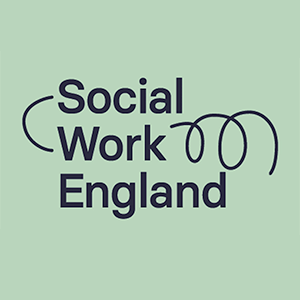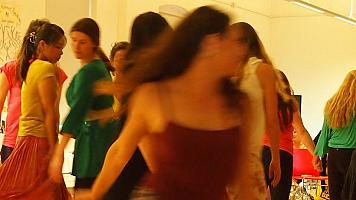MA
Social Work
Content navigation menu
Why study MA Social Work at Goldsmiths
This Masters is ideal for graduates with relevant experience interested in pursuing a professional career in social work. You will receive an approved qualification, enabling you to register with Social Work England and work as a qualified professional on completion of the programme.
- The MA Social Work is an academic and professional qualification that also provides a gateway to more specialist therapeutic qualifications and research degree programmes.
- Social work education at Goldsmiths has a long and distinguished record – we have one of the most respected social work units in the UK, and you'll be taught by established social work academics and associate lecturers who have considerable research and/or practice experience in their fields.
- You will learn the values, skills, and knowledge needed to practise as a reflective and ethical social worker, and be well equipped for the challenges of contemporary social work practice.
- You also will be encouraged to make links between anti-oppressive practice, the social work values, the legal framework, theories, methods and skills of intervention, and social work practice throughout the programme.
- In the 2023 Guardian League Tables, our team was rated top in London for course quality and satisfaction.
Statutory and non-statutory placements
- The Masters includes two practice placements in statutory and non-statutory settings and with different service user groups, so you'll be able to gain valuable real-world experience.
- We will encourage you to think deeply about human rights and social justice, and to embed these values in your practice. You will develop your skills for reflective and evidence-based practice and will be able to further your research mindedness.
Begin a career after graduation
- Over 95% of MA Social Work graduates at Goldsmiths go on to full-time graduate-level social work practice.
- Goldsmiths' social work programmes are highly regarded by potential employers in London, the South East of England, and nationally, and our alumni have an excellent record of securing employment. Past graduates have gone on to work in local authority children's services departments, adult services departments, and independent/voluntary sector agencies such as the NSPCC, Family Action and Mind.
- As we were a founding member of the South East London Teaching Partnership initiative, we have established a fantastic programme where you will be jointly taught by practising social workers-teaching consultants. Depending on your profile, interests, and experience, you may also secure social work placements in local authority settings.
Contact the department
If you have specific questions about the degree, contact Mark Taylor.
Length
2 years full-time
Entry requirements
Usually an undergraduate degree (2:2) or equivalent, plus other requirements. Please see section below for full details
Fees
Home - full-time: £11250
International - full-time: £24350
Department
Social, Therapeutic and Community Studies

This programme is approved by Social Work England (SWE)
Overview
Successful applicants on the MA in Social Work commit to studying on a full-time taught course over two years. On successful completion, you will receive a MA in Social Work, which is the professional entry qualification to be a social worker and it enables you to apply for registration as a social worker.
The curriculum aims to provide you with the value, knowledge and skill base for practice, and is organised around study units, workshops, lectures/seminar modules, projects and private study. The teaching and learning opportunities centre on the key areas of the social sciences and their application to Social Work practice, as well developing your intellectual capacity, and the skills necessary to get you ready for practice. There is an expectation that you attend at least 85% of all aspects of the programme.
The structured learning includes specific learning in:
- Human growth and development, mental health and disability
- Social work theories and methods; assessment, planning, intervention and review
- Communication skills with children, adults and those with particular communication needs
- Law, and partnership working across professional disciplines and agencies
- Social science research methods, including ethical issues
Practice is central to the programme, and there will be practice placements in two settings and with different service user groups (eg child care and mental health).
The learning on the programme builds over the two years and prepares you to apply your knowledge to practice situations. We work closely with a range of practice organisations in the Greater London Area. The placements are allocated by our placement tutor and matched with individual profiles. In some instances, you may have to travel long distances to your placement organisation. You will need to cover the cost of travel to your placement. You will be expected to work the core hours.
At Goldsmiths we recognise:
- The unique contribution that all students bring as individuals to the programme in terms of their personal qualities and life experiences
- That professional training builds on the uniqueness of each individual by facilitating the student’s exploration of the values, knowledge base and skills of Social Work practice
- That it is the student’s responsibility not only to develop a technical acquaintance with the framework of Social Work practice but also to demonstrate competence through its application in practice
- That Social Workers are at the interface of society’s attempts to promote welfare
Social workers have a dual responsibility to act within the state’s welfare framework and also to recognise the pervasive influence of oppression and discrimination at an individual and a structural level in most of the situations in which they work. We will prepare you for this professional responsibility.
What you'll study
In Year 1 you are introduced to social work as a professional activity and an academic discipline. You consider key concepts such as the nature of need, community, social work services, and the significance of the service user perspective.
You are also provided with an introduction to life-span development, assessment in social work and a range of social work intervention approaches. Your assessed practice consists of 70 days spent as a social worker; this gives you the chance to develop your communication and social work practice skills with service users and to work in partnership across professional disciplines and agencies.
| Module title | Credits |
|---|---|
| Theories of Individual Development | 30 credits |
| Multidisciplinary Research Design and Methodologies | 15 credits |
| Social Work Skills and Methods 1 | 15 credits |
| Introduction to Law and Social Work | 15 credits |
| Social Work 70-Day Placement and Practice Integration | 30 credits |
| Theory, Policy and Practice | 15 credits |
Assessment
Assessment by a range of methods including assignment, essay, critical reflection, presentation, dissertation, placement portfolio, role play, seen exam, report and case study.
Professional standards
Social work is a regulated profession. From September 2019 Social Work England (SWE) took on the regulation of social workers and the regulation of the performance of social work courses. This means that social work students will need to adhere to the professional standards set out by Social Work England. These are the standards social work students are expected to demonstrate at the end of their last placement/ qualifying level.
Social Work at Goldsmiths
Goldsmiths has a long tradition of social work education, and our programmes are internationally regarded as excellent in both practice learning and critical studies. They also have a strong focus on anti-discriminatory and anti-oppressive practice.
We have a lively programme of research taking place in areas as diverse as:
- The links between child abuse and domestic violence
- Multi-family group work with teenage parents
- Service user perspectives and transnational adoption
- Mental health social workers' use of mental health laws and coercion
- Equality and diversity in social work education
- The effects of political conflict on social work practice and education
- Reflective professional social work practice
- Evaluative approaches to service provision
- Creative social work and innovative practice
Our research informs and underpins our teaching and students are invited to share our interests as well as develop their own through undertaking a small-scale research project and developing their research mindedness in a final year Dissertation.
South East London Teaching Partnership
The Department of Social, Therapeutic and Community Studies (STaCS) at Goldsmiths is part of a formal teaching partnership with the Royal Borough of Greenwich, the London Borough of Southwark, and the London Borough of Lewisham for the delivery of social work education at Goldsmiths.
We were one of only four early adopter sites across the UK to receive government funding to develop and test new and innovative approaches to social work qualifying education, early career training, and continuing professional development programmes. This has allowed a number of social work practitioners from all levels within these Boroughs to be directly involved in the MA Social Work, delivering lectures, workshops, and seminars. This means that there is a very close relationship with practice to ensure that, by the end of the programme, students are equipped to deliver authoritative, compassionate relationship-based social work practice that makes a positive difference to people’s lives.
Entry requirements
To be accepted onto the programme you must:
- Have (or expect to be awarded) an undergraduate degree of at least second-class honours standard.
- Have a Grade C or above in GCSE English or certified equivalent. Please view our list of accepted UK GCSE equivalencies.
- Have a minimum of six months full-time (or part-time equivalent) relevant voluntary or paid work experience (normally within the last two years), of which a minimum of three months full-time experience must have been gained by the time of application and a further three months' full-time experience by the start of the degree. Please make sure you read our work experience guide for more information about the experience that we accept.
- Have the understanding and personal, intellectual, and professional qualities to become a social worker and can demonstrate this through relevant social work experience.
- Meet the Fitness to train requirements.
You should also be able to demonstrate that you can communicate clearly and accurately in spoken and written English.
Where required, our Admissions Office will direct you to acceptable equivalency tests for those who do not meet the required grades or levels.
Please note that, due to the volume of applications we receive, applicants who do not meet the entry requirements will not be considered.
International qualifications
We accept a wide range of international qualifications. Find out more about the qualifications we accept from around the world.
If English isn’t your first language, you will need an IELTS score (or equivalent English language qualification) of 7.0 overall to study this programme. If you need assistance with your English language, we offer a range of courses that can help prepare you for postgraduate-level study.
Disclosure and Barring Service (DBS) Enhanced Disclosure
Certain types of criminal convictions and cautions may have implications for entry to study Social Work as well as practice placements and subsequent employment. Applicants will be invited to disclose any charges pending, any convictions and cautions and to complete a Declaration of Suitability for Social Work form. If you disclose a criminal record at interview, we will need to consult our stakeholder group on whether you are suitable to join the course. This process is likely to delay our decision on whether to offer you a place on the course by several weeks.
Fitness to train
Applicants to social work programmes are asked to disclose any criminal record, disciplinary record, significant periods of time off work and significant health problems in writing after interview. If we wish to make an applicant an offer of a place on the course, an anonymised version of the applicant’s written disclosure will be reviewed by a panel which considers the applicant’s suitability for social work training. This process is additional to normal ‘fitness to train’ processes.
How and when to apply
Applications for this programme are taken through UCAS.
Our institution code is G56 and our institution name is GOLD. The course code is L508.
In your application you'll need to tell us about your academic qualifications and your work experience.
It is vitally important that you enter full details of your social work-related work experience (both paid and voluntary) in the 'Employment' section of the UCAS form. Please include the name of the organisation you worked for, the exact length of your experience, and how many hours per week you worked (eg 'March 2022 to Oct 2023, three hours each week').
You should then expand on this experience in the personal statement section of the form. Please explain clearly:
- What role you held
- How long you held the position for
- What time commitment was involved
- Who the service user group was
- The name of the organisation you were working for
For example: 'Volunteer Advocate, April 2022 to September 2023, three hours per week, X advocacy service for disabled people'.
If you don't provide this information your application won't be considered.
It's also important that you explain what you've learned from your work experience, and how this has contributed to your understanding of social work roles and tasks. You should also reflect on what you've learned about yourself and the service user group(s) that you have worked with. Please make sure your personal statement is well written and demonstrates your academic ability.
Please make sure you read our work experience guide for more information about the experience that we accept.
When to apply
This is a popular programme, so we encourage you to apply early, in the autumn/winter of the year before you wish to study. We do not accept deferred entry.
You may not hear from us regarding the progress of your application for several weeks. Applications received after the UCAS deadline may not be considered.
Fees and funding
Annual tuition fees
These are the PG fees for students starting their programme in the 2025/2026 academic year.
- Home - full-time: £11250
- International - full-time: £24350
If your fees are not listed here, please check our postgraduate fees guidance or contact the Fees Office, who can also advise you about how to pay your fees.
It’s not currently possible for international students to study part-time under a student visa. If you think you might be eligible to study part-time while being on another visa type, please contact our Admissions Team for more information.
If you are looking to pay your fees please see our guide to making a payment.
Funding opportunities
Explore the Goldsmiths scholarships finder to find out what funding you may be eligible for.
Paying your fees
Find out about paying your tuition fees.
If you are a UK student you may be eligible for a postgraduate loan.
Meanwhile our Careers Service can also offer advice on finding work during your studies.
Additional costs
In addition to your tuition fees, you'll be responsible for any additional costs associated with your course, such as buying stationery and paying for photocopying. You can find out more about what you need to budget for on our study costs page.
There may also be specific additional costs associated with your programme. This can include things like paying for field trips or specialist materials for your assignments. In some instances, you may have to travel long distances to your placement organisation. You will need to cover the cost of travel to your placement.




